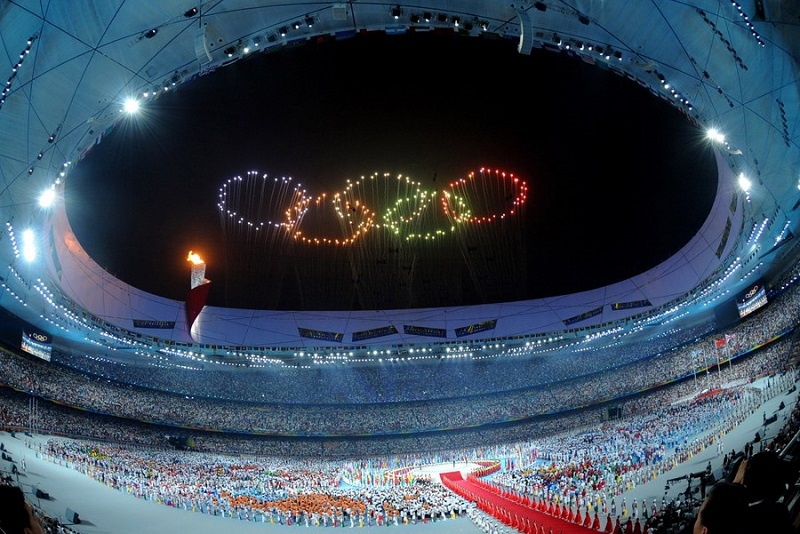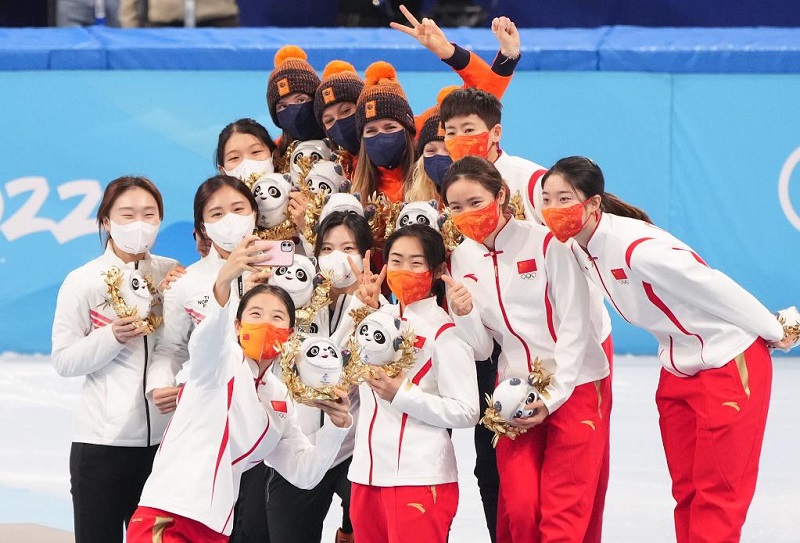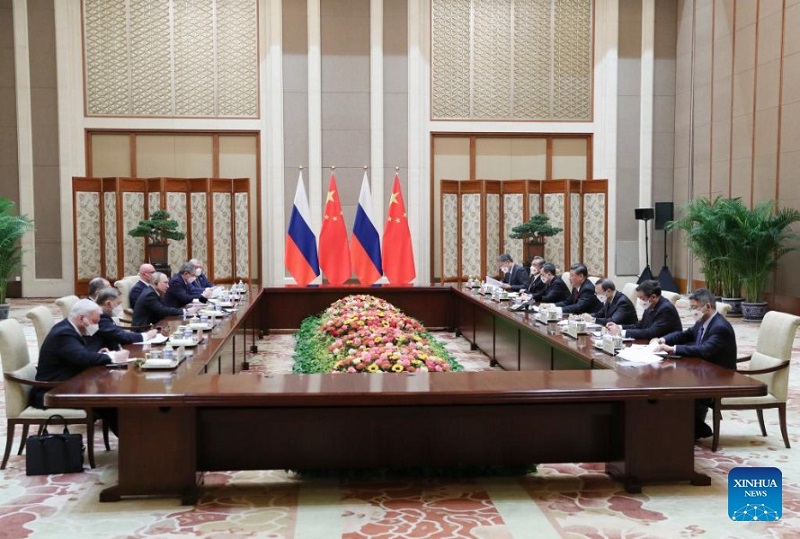From the ancient Olympics between Greek city-states dating back almost three millennia and from their modern resurrection in 1894, never have the Games been so blessed with advanced technologically, detailed planning, and lavish funding from a host nation, or so cursed with blatant violations of the Olympic spirit than the 2022 Winter Olympics, more formally known as the XXIV Olympic Winter Games in Beijing.
I’ve had the good fortune to personally attend the Games of the XXIV Olympiad in Los Angeles in 1984, the XV Olympic Winter Games in Calgary in 1988, and the XXIX Olympiad in Beijing in 2008. Watching the action on TV is thrilling enough, but being there is no comparison when it comes to the emotion of the moment and the vivid life-long memories the experience creates.
Unlike Japan, who, try as they might, were barely able to hold their 2020 Summer Games until a year later, China deserves a gold medal for merely pulling off such incredible Games precisely on time starting well before the beautiful opening ceremony against the long odds facing it during the Coronavirus. You might say that China did the impossible and laid a magnificent golden egg in a neon Bird’s Nest inside a healthy, hermetically sealed sanitary bubble. Their efforts are succeeding in keeping safe a nation of 1.4 billion people, together with the athletes and staff of 91 nations, all ravaged to one degree or another by Covid-19 to a relatively few of less than 600 imported cases.
The 2008 Olympics were impressive enough, together with all the art, culture, and comradery that I and so many hundreds of thousands of Chinese and foreigners enjoyed. It was truly an epochal coming out party for China which invested the record-breaking sum of $43 billion and which left behind a vast array of infrastructure serving the people in new buildings, new homes, and new state-of-the-art subways still in service today and for many decades to come.

Beijing’s “Bird’s Nest” National Stadium hosted the opening ceremony for the 2008 Olympic Games. (Photo/Xinhua)
The 2022 Games have added to the infrastructure inventory at an ever-greater investment than 2008. But that investment has brought increased tangible benefits such as the bullet train from Beijing to Zhangjiakou which reduced the travel time from more than three hours to 47 minutes and infrastructure that will jumpstart industrial and residential development and a growing appetite for winter sports among China’s exploding middle class.
I’m not sure that China would have had the confidence to do 14 years ago in that placid period of normalcy, whose return we all long for, what they’ve accomplished in the midst of a two-year pandemic that has already taken nearly six million lives globally (but in China with 18.47 percent of the global population, a mere 4,636 deaths, less than 0.01 percent of total Covid deaths). China and its people are clearly more confident and self-assured now under the leadership of President Xi Jinping and the Communist Party of China. As my think tank colleague, Victor Gao, of the Center for China and Globalization said recently: “China was eager to prove itself at the 2008 Olympics. In 2022 China does not have to prove anything.”
China’s confidence and its Olympic achievement show just how much it’s matured since 2008. Sadly, on the flip side, Western angst, fear, and insecurity have grown in reaction to China’s peaceful rise. Targeting the Olympics has resulted in distinctly unsportsmen-like behavior and their overt-politicization — and not for the first time. By sowing division, they’ve made a mockery of the Olympic ideals in general, and of this year’s theme “Together for a Shared Future” in particular.

Medalists take a selfie during the flower ceremony of the women’s 3,000m relay final of short track speed skating at Beijing 2022 on Feb. 13, 2022. (Photo/Xinhua)
In 1980, led or coerced by the US, 65 nations boycotted the Moscow Olympics in protest of the USSR’s invasion of Afghanistan. The US and many other Olympians and Paralympians were furious that they were denied the once-in-a-lifetime opportunity of competing in the Games to which they fully devoted themselves at great personal sacrifice because of actions not of their own doing. At least this time, the US athletes are able to compete amidst a so-called diplomatic boycott. I suppose there’s less hot air in Beijing as a consequence.
But in doing so, these boycotting countries and their leaders have again shot themselves in the foot. Since ancient times, and again in 2022, the Olympics have also been about leaders getting together, negotiating, and frequently entering into win-win cooperation from which this year’s boycotters have self-defeatingly abstained.
More than 30 foreign dignitaries attended the opening ceremony. They met with President Xi and other senior Chinese officials including President Vladimir Putin of Russia, Prime Minister Imran Khan of Pakistan, President Alberto Fernandez of Argentina, President Aleksandar Vucic of Serbia, and the five Central Asian heads-of-state.
Close to home, neighbors China and Russia signed an unprecedented and unlimited strategic partnership that Asia Society president and former Australian prime minister Kevin Rudd called “highly significant” because it was “the first time since the Sino-Soviet split that China’s taken a definitive position on European security to support Russia on something as fundamental as NATO”. Near neighbors China and Pakistan agreed that they would move forward on Phase II construction of the important China-Pakistan Economic Corridor.

Chinese President Xi Jinping holds talks with Russian President Vladimir Putin at the Diaoyutai State Guesthouse in Beijing, capital of China, Feb. 4, 2022. (Photo/Xinhua)
Much further away, despite being separated by vast distances, in a sign of growing closeness between China and Latin America, Argentina formally joined China’s Belt and Road Initiative (BRI) and the two nations signed numerous cooperation agreements in areas such as aerospace, agriculture, digital economy, and technological innovation. And China and Ecuador officially launched free trade agreement negotiations.
As I learned when I visited the International Olympic Committee’s (IOC) headquarters in Lausanne Switzerland in November, one of the great Olympic traditions beginning in 776 BC was the Olympic Truce which resulted from a treaty between three kings. During the truce period, all regional conflicts were suspended permitting athletes, artists, and their families, as well as the public, to safely participate in the ancient Olympics and return afterwards to their respective countries.
This ancient practice of political neutrality in the Olympics was resurrected by the IOC and the United Nations in 1991. Now, before each Olympics, a UN resolution “Building a peaceful and better world through sport and the Olympic ideal” is adopted. Through it, the UN calls upon its members to observe the Olympic Truce and to seek peaceful settlement of international conflicts.
Interestingly, the US, which takes every opportunity to falsely criticize China for not participating in the rules-based international order, unlike before the Tokyo Olympics, did not co-sponsor the resolution for the Beijing 2022 which was co-sponsored by 173 of 192 UN members. The bizarre stated reason was that the US objected to China’s vision for the Games which included inspiring youth and promoting enthusiasm for winter sports, social progress and world peace, and a commitment to delivering “Olympic Games that are green, inclusive, open and clean.” Tellingly, the three other members of “The Quad” arrayed with the US to contain China and block its rise—Australia, India and Japan—also refused to be co-sponsors.
As the Spanish philosopher, George Santayana famously observed: “those who do not remember the past are condemned to repeat it”. It’s more than sad when the US and China have so many overlapping national interests like ensuring global public health, and preventing climate and nuclear Armageddon, that in 2022 the US and some of its allies can’t observe their own Olympic Truce. Even the US and USSR got together at the height of the Cold War to together defeat the deadly, ancient scourge of smallpox.
The article reflects the author’s opinions, and not necessarily the views of China Focus.